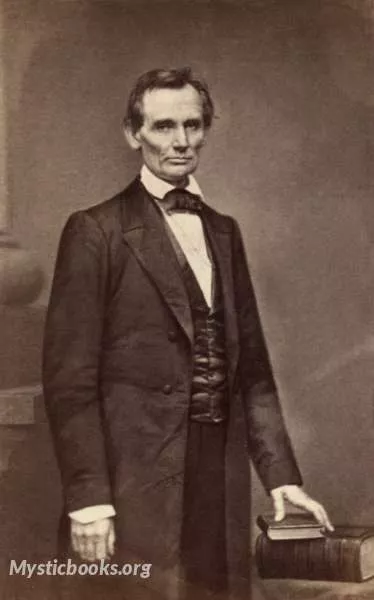
Lincoln at Cooper Union
'Lincoln at Cooper Union' Summary
Lincoln's speech has three major parts, each building towards his conclusion. The first part concerns the founders and the legal positions they supported on the question of slavery in the territories. The second part is addressed to the voters of the Southern states by clarifying the issues between Republicans and Democrats. He rebukes claims made by the Democrats that they are "conservative", arguing instead that the Republicans' position on slavery is in fact the "conservative" policy, as Lincoln claims it coincides with the views of the American founding fathers, who he said opposed slavery. By supporting slavery, Lincoln claims that the Democrats are in opposition to the teachings of the founding fathers and "reject, and scout, and spit upon that old policy, and insist upon substituting something new." The final section is addressed to Republicans.
In the first section, in response to a statement by Illinois Democrat Stephen A. Douglas, Lincoln asks rhetorically, "What is the frame of government under which we live?" He answers that it "must be: 'The Constitution of the United States.'" From there, he begins his reasoning on why the federal government can regulate slavery in the federal territories (but not states), especially resting on the character of the founders, and how they thought of slavery:
The sum of the whole is, that of our thirty-nine fathers who framed the original Constitution, twenty-one – a clear majority of the whole – certainly understood that no proper division of local from federal authority, nor any part of the Constitution, forbade the Federal Government to control slavery in the federal territories ...
In the second part, in which he uses the prosopopoeia of a mock debate between Republicans and the South. Lincoln denies that Republicans are a "sectional" party, representing only the North and helping to incite slave rebellions. He rebukes the Southern Democrats' accusation that Republicans helped John Brown by saying, "John Brown was no Republican; and you have failed to implicate a single Republican in his Harper's Ferry enterprise." He addressed the single-mindedness of the Southern Democrats:
Your purpose, then, plainly stated, is that you will destroy the Government, unless you be allowed to construe and enforce the Constitution as you please, on all points in dispute between you and us. You will rule or ruin in all events.
He also tried to show that the Southern Democrats' demand to secede from the Union if a Republican were to be elected president was like armed robbery: "the threat of destruction to the Union, to extort my vote, can scarcely be distinguished in principle" from that of a robber.
The third section, addressed to fellow Republicans, encourages level-headed thinking and cool actions, doing "nothing through passion and ill temper":
We must not only let them alone, but we must somehow, convince them that we do let them alone. This, we know by experience, is no easy task. We have been so trying to convince them from the very beginning of our organization, but with no success. In all our platforms and speeches we have constantly protested our purpose to let them alone; but this has had no tendency to convince them.
Lincoln states that the only thing that will convince the Southerners is to "cease to call slavery wrong, and join them in calling it right", supporting all their runaway slave laws and the expansion of slavery. He ends by saying that Republicans, if they cannot end slavery where it exists, must fight through their votes to prevent its expansion. He ends with a call to duty:
Neither let us be slandered from our duty by false accusations against us, nor frightened from it by menaces of destruction to the Government nor of dungeons to ourselves. Let us have faith that right makes might, and in that faith, let us, to the end, dare to do our duty as we understand it.
Book Details
Language
EnglishOriginal Language
EnglishPublished In
1860Genre/Category
Tags/Keywords
Authors

Abraham Lincoln
United States
Abraham Lincoln was an American statesman and lawyer who served as the 16th president of the United States from 1861 until his assassination in 1865. Lincoln led the nation through the American Civil...
Books by Abraham LincolnDownload eBooks
Listen/Download Audiobook
- Select Speed
Related books
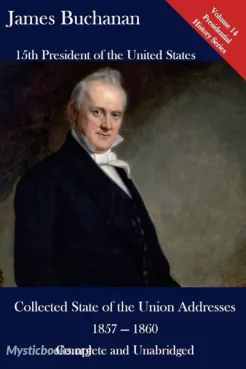
State of the Union Addresses by United States Presidents (1857 - 1860) by James Buchanan
In the annals of American history, few presidencies have been as controversial and consequential as that of James Buchanan. As the nation teetered on...
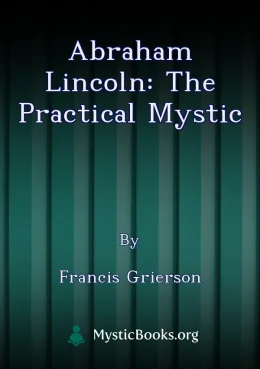
Abraham Lincoln: The Practical Mystic by Francis Grierson
This book delves into the life and legacy of Abraham Lincoln, exploring his philosophical and spiritual beliefs, particularly his embrace of mysticism...

Bible (WEB) NT 18: Philemon by World English Bible
While in prison, Paul writes this letter to another Christian, Philemon. Paul has met with and converted a man named Onesimus, probably a runaway sla...

Bible (KJV) NT 18: Philemon by King James Version
The Epistle to Philemon is a short letter written by the Apostle Paul while imprisoned in Rome. It addresses the issue of slavery and forgiveness, urg...
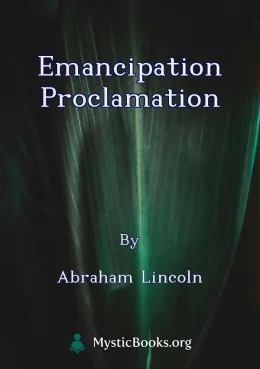
Emancipation Proclamation by Abraham Lincoln
The Emancipation Proclamation is a landmark document in American history. Issued by President Abraham Lincoln on January 1, 1863, it declared that all...
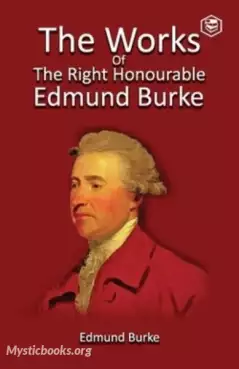
The Works of the Right Honourable Edmund Burke, Vol. 01 by Edmund Burke
Edmund Burke was an Irish statesman, economist, and philosopher. Born in Dublin, he moved to London in 1750 and later served as a member of parliament...

Voice From Harper's Ferry by Osborne Perry Anderson
A Voice from Harper's Ferry is a groundbreaking firsthand account of the famed 1859 raid on Harpers Ferry, written by Osborne Perry Anderson, the sole...
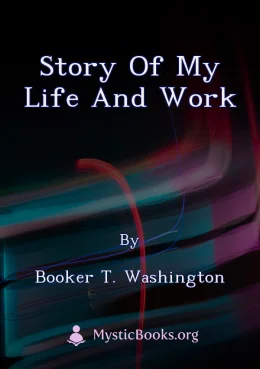
Story of My Life and Work by Booker T. Washington
This autobiography recounts the life and work of Booker T. Washington, a prominent African American leader who rose from slavery to become a leading a...
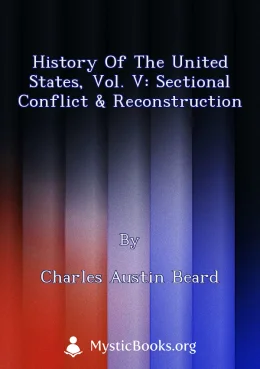
History of the United States, Vol. V: Sectional Conflict & Reconstruction by Charles Austin Beard
Charles Beard was the most influential American historian of the early 20th century. He published hundreds of monographs, textbooks and interpretive s...
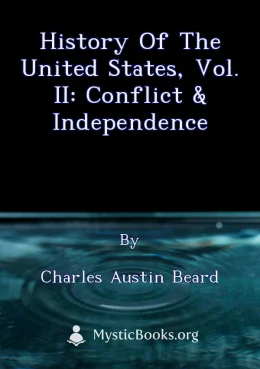
History of the United States, Vol. II: Conflict & Independence by Charles Austin Beard
Charles Beard was the most influential American historian of the early 20th century. He published hundreds of monographs, textbooks and interpretive s...
Reviews for Lincoln at Cooper Union
No reviews posted or approved, yet...